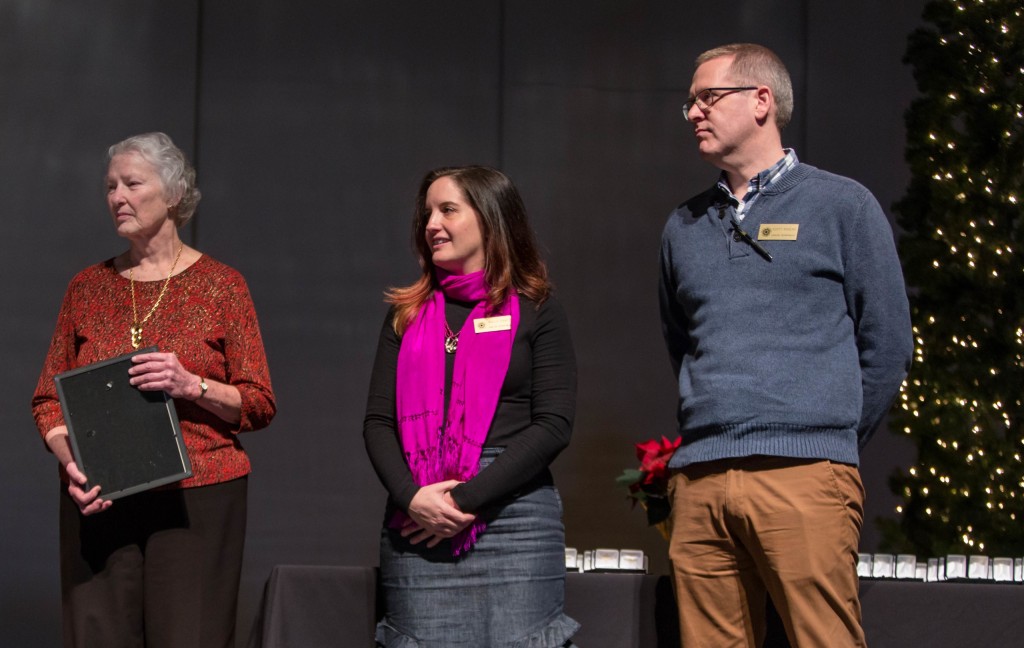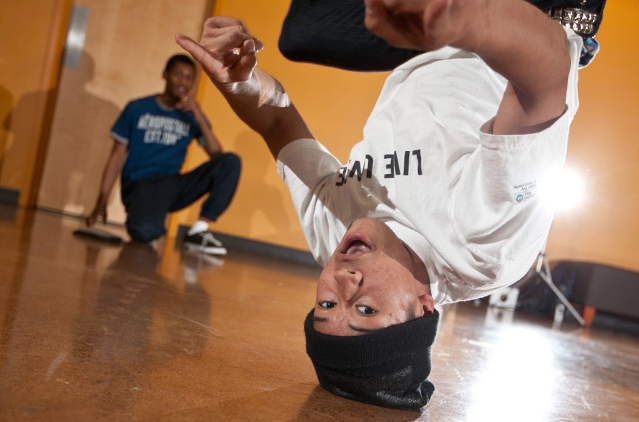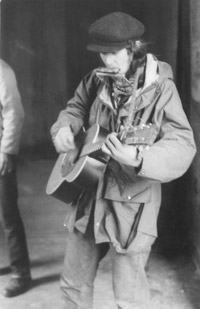Page 52 • (565 results in 0.074 seconds)
-

“Inquiry. Collaboration. Development. Those are the three words we choose to define the work we do at the lab.” – Dr. Adela Ramos The Digital Humanities Lab, or DHLab, is a creative space at Pacific Lutheran University that offers support to faculty and students seeking…
about collaboration.” In terms of development, the DHLab transforms projects envisioned by students or faculty that may seem out of reach at a first glance, turning them into practical and attainable plans. With these three unique values in mind, the DHLab is building a community at PLU one project at a time. Faculty and students come together to produce projects around intellectually significant questions, including the three featured on this page. The DHLab directors are also very happy with how
-

TACOMA, WASH. (June 27, 2019) — Dr. Jon Grahe’s reach extends around the globe as an open science ambassador. Nearly a decade ago, Dr. Grahe declared that he wanted to change how we study social science. Because of his tireless efforts, a new approach to…
practices.” Emerging Adulthood Measured at Multiple Institutions 2: The Next Generation Project (EAMMi2) In 2016, Dr. Grahe organized a comprehensive collection of measures on a survey for the EAMMi2 (building on the original EAMMI). One goal was to generate rich, large-scale data to answer research questions related to Emerging Adulthood, or the period between ages 18-29 when individuals transition from adolescence to adulthood. An additional objective was to compile a data set that instructors could
-
Gaslighting is the through line and ultimate source of tension in season two of Sanditon . This psychological manipulation is present in Captain Lennox’s abuse of Mr. Parker’s trust and the financial entrapment that threatens to sap Sanditon dry, one more in a series of…
that “Edward exploited you.” This was the scene that many of us had been longing for as their enmity in the first season prevented two women from a sisterly alliance and advocacy that would only make them more resilient to the behaviors of someone like Edward and the broader machinations of a patriarchal society. Both women had endured abuse from men in their lives with Edward’s manipulation of Esther in their strange, at times romantic, stepsibling relationship and with Clara’s alluded to history
-
In honor of Women’s History Month, we are “commemorating and encouraging the study, observance and celebration of the vital role of women in American history.” ( https://www.womenshistorymonth.gov/ ). This exhibit includes a short list of just a few women’s first achievements in the past six…
the famous autobiographical books. But the true saga of her life has never been fully told. Now, drawing on unpublished manuscripts, letters, diaries, and land and financial records, Caroline Fraser–the editor of the Library of America edition of the Little House series–masterfully fills in the gaps in Wilder’s biography. Revealing the grown-up story behind the most influential childhood epic of pioneer life, she also chronicles Wilder’s tumultuous relationship with her journalist daughter, Rose
-

On day one of PLU Professor of Mathematics Daniel Heath’s Designing a Starship class, students have no idea what they have signed up for — and that’s exactly how Heath wants it. The course is part of PLU’s International Honors Program (IHON), which means it…
insightful answers,” Heath writes in the class syllabus. “Although we will be using some scientific methods of inquiry and exploring scientific ideas, this is not a science course. As we work to design our starship, we will find that many of the lessons we learn can be directly applied on Earth.”In the first few weeks of class, Heath’s goal is to convince students that they are actually building a starship. It’s the most important part of the course because the starship concept forces students to think
-
Hughes encourages classmates to be global citizens President Anderson, Faculty and Staff, Representative from the Ministry of Community Development, Culture and Gender Affairs, Family and Friends, invited guests, and fellow graduates, Good Afternoon. It gives me great pleasure to stand before you today as a…
involved in at PLU, I don’t think I would have been able to do that anywhere else. From my first year involvement in theatre and Dance Ensemble, to later International Senator of ASPLU and Diversity Advocate in the Diversity Center. I was allowed and encouraged to share my culture as I received tremendous support while spearheading PLU’s annual campus carnival. The Diversity Center has been my second home, as being a student leader has given me the great experience working with others, team building
-
Perspective: Rethinking the global citizen The field of Subaltern Studies came into existence to address a perceived problem with the way that existing scholarly paradigms in anthropology, Latin American studies, and many other fields, had understood the “objects” of study: people in cultures other than…
besetting these people, our understanding and respect was more important than clothes, shoes or money. It is perhaps an understandable reflex that, when we in industrialized nations picture the “global citizen,” we imagine Americans or Europeans abroad, building water pumps, or donating money for schools in Afghanistan. While this kind of work can indeed be important, our experience in rural Mexico brought home the importance of moving past this reflexive understanding of global citizenship to one that
-

Anthony Chan Bounleurt – spinning on his head. (Photo by John Froschauer) There’s a faith club for that By Barbara Clements It could be any evening on the ground floor of the University Center: A group of young men and women – about 25 of…
July 27, 2011 Anthony Chan Bounleurt – spinning on his head. (Photo by John Froschauer) There’s a faith club for that By Barbara Clements It could be any evening on the ground floor of the University Center: A group of young men and women – about 25 of them – drift into the lounge area, greeting each other. Some chat; others open their laptops – all as if they are waiting for something. Then, someone cranks up the hip-hop, and its steady thrum echoes through the building. They start stretching
-

Greg Youtz: Composing for the cannery – of boxcars, rhinos, and grapes By James Olson ’14 In 1973, a 17-year-old Gregory Youtz departed from Sea-Tac International Airport and landed in France. Meritoriously skipping the third grade, the young composer had afforded himself the luxury of…
community and that they serve that community. I think art should serve a purpose and that should be a purpose that people can understand.” Youtz, who fittingly teaches a class called On Creativity, involves himself, additionally, in a wide variety of community engagements, including but not limited, to assistant teaching at the Tacoma Youth Symphony, and membership on a board for the building of a Chinese park on the Tacoma water front. “I’m all over the map,” he says, meaning this both literally and
-

FEDERAL WAY, Wash. (Aug. 6, 2015)—Ann Kullberg ’79 has never taken a formal art course, but her work is internationally known—and her story is as colorful as her art. Though the lines were not always straight, and there were rough patches along the way, Kullberg…
her love for the people, language and culture of Japan. But because the professor who taught Japanese at PLU had retired, she pursued an Education degree. Now a resident of Federal Way, Wash., Kullberg lived in Stuen Residence Hall all four years at PLU. The art building was visible from her window, so she watched art students go to class, never considering herself “good enough” to take an art class herself. Her own artistic epiphany came later, after graduating, marrying, moving back to Oregon
Do you have any feedback for us? If so, feel free to use our Feedback Form.


